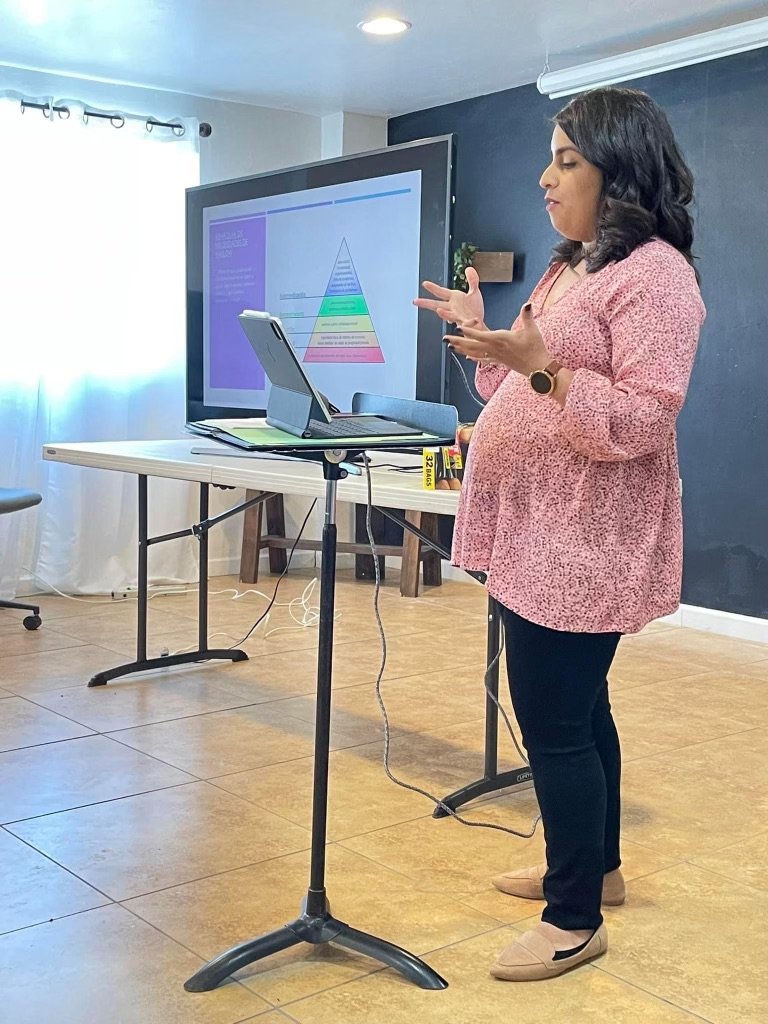FSW Social Work 101 Training: What is it about?
By Cintia Aguilar
During the past four months I have had the privilege of working alongside Fellowship Southwest and our partner Jorge Zapata, teaching “Social Work 101” to pastors who have ministries along the U.S.-Mexico border. The idea of this training was born because of the type of work the pastors do along the border. They work with very poor and immigrant communities and are the front lines during crises and emergencies.
The Social Work 101 curriculum, which I created along with colleagues and supervisors during my time as an intern with The Center for Church and Community Impact (C3I), strengthens the current ministries the pastors have, instead of replacing what they already do. One of the principals of social work focuses on strength-based skills and tools. We take skills and tools the pastors use in their ministries to strengthen the work they already do.
The curriculum starts with a biblical foundation of helping those in need. We reflect on passages like the Good Samaritan and talk about how we can take his example in going the extra step in our community ministries. We talk about passages like Matthew 25:35-36 and reflect on the importance of realizing Jesus Christ cares about lives holistically. He does care about our hunger, thirst, and shelter as much as he cares about our souls.
Then we enter a more practical space where I provide the pastors with a basic concept of case management and how having case managers or leaders in their setting could greatly benefit their ministries. We dive deep into steps and skills they can practice and keep in mind as they work with individuals and families, such as commitment to the work with individuals and families, evaluation, planning, intervention, assessment and transition.
To practice the steps and skills they learn, the pastors gather in groups to work through a case study and decide how they would help the person in need.
The curriculum also includes a very brief and basic conversation about crisis, emergency, and trauma and how learning to differentiate between them will greatly improve how we respond to certain events in the community.
We also reflect on the importance of self-care. It is not a surprise that pastors have a lot on their plates. They are, many times, the first responders to tragic events and are the pillars that keep their communities together. Emphasizing the importance of self-care has been very impactful. Reflecting on the fact that they cannot minister to others if they are burnt out brings awareness of the importance of having a team of leaders they can count on. They reflect on how Christ has called them to love others as they love themselves, which means they need to give themselves grace to rest and recover, like they do for others.
An eye-opening experience with each group has been learning about “Client Self Determination”. We learn that the people we minister to are the experts of their own experiences. We learn to accept and affirm them as they are, to support and walk alongside them as they navigate the path from crisis to stability. We learn to listen for where the sense of urgency is, instead of formulating a thousand responses in our heads. One pastor said “Even when it was obvious, Christ always asked those he was healing or helping what they wanted. Even if it was obvious that the person was blind and they would want sight, Christ always asked what they wanted before actually performing a miracle.”
As much as society has wanted to separate social work and ministry work, they inevitably go hand in hand with the example Christ left us. He did not play it safe by staying inside the four walls of a church; he went out, ministered, healed, and fed those who need it. These pastors are already doing that daily. Having the opportunity to empower them with a structured set of steps and skills has been empowering to me as well.
To attend a similar training over Zoom on Dec. 6 and Dec. 13, click here.
Cintia Aguilar is a recent graduate of Baylor University’s dual masters degree program at Truett Seminary and Garland School of Social Work. She is associate pastor of Primera Iglesia Bautista de Waco and a workshop facilitator for Fellowship Southwest.







